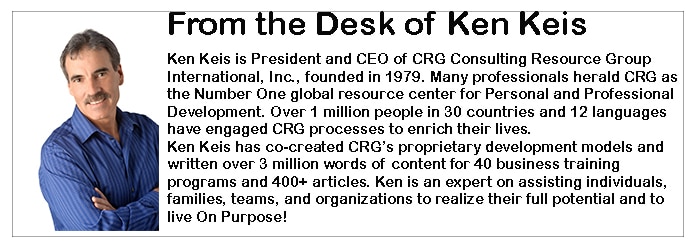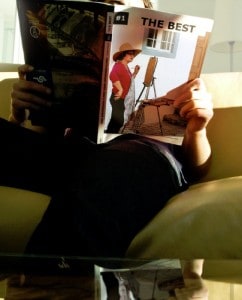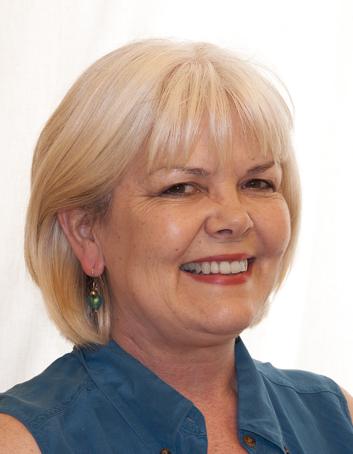What is Personal Style
What is Personal Style Anyway?
It is surely true that no two people are ever exactly alike.
It is equally true that in certain ways, all people are the same. This seeming paradox is the vessel that contains the concept of personality.
E. J. Phares
The Parts are the Sum of the Whole.
This chapter will show the many factors that make up our personality and will clarify what we mean by Personal Style.
You all have experienced differences in others. For example, some people enjoy engaging with complete strangers at a bus stop, yet others would never do that. Some have the ability to focus and build models all day, yet others would rather have a root canal than decipher the directions for the model, let alone spend time building it. Neither response is right or wrong. They are simply different perspectives on similar opportunities and events.
It is so exciting that part of our personality—what we call Personal Style—is not only predictable, it forms a base line or foundation from which our life operates. Personal Style can be managed intentionally and understood with relative ease.
A Foundation of Preferences
Underpinning all the layers of learned behavior is an anchor of personal preferences. We call it Personal Style. It is your innate predisposition (born that way) to a preference for behaving in certain ways. Your Personal Style is reflected in your natural tendency to prefer, despite other influences, a particular manner of perceiving, approaching, and interacting with the environment around you. Those preferences form the working definition of Personal Style.
Definition of Personal Style
Your natural predisposition to Perceive, Approach, and Interact,with Your Environment.
Your Environment includes Time, People, Tasks, and Situations.
Personal Style affects the way we experience, sense, and see any situation we are in and controls what will capture our attention. Personal Style influences the plans, approaches, and strategies we use; what we want to achieve from a situation; and where we will place the most value afterward. Please pay very close attention to this statement.
Personal Style is not the same as personality.
Personal Style is part of your overall personality. The two are very much connected, but they aren’t the same.
In the next article to come, we will outline the Holistic Personality Development Factors Model that addresses that connection in detail. Now, let’s continue with Personal Style.
Personal Style acts as a kind of underlying foundation upon which other factors build. Like the deep foundation of a tall building or bridge that supports the rest of the structure, your Personal Style provides your foundation and the way you prefer to engage your environment.
A Key for Understanding Self and Others
Although Personal Style is merely one category of factors that determine the development of our personalities, this particular category has a surprisingly pervasive and enduring influence on our lives. In fact, it sways our personalities and behavioral choices from birth until death.
How can that be?
It is obvious that all individuals in the same situation do not deal with it in exactly the same way. Even though environmental circumstances may be identical for all the people involved, they often react totally differently. A key for understanding that confusing yet fascinating human truth can be found through examining the definition of Personal Style more closely.
The term natural predisposition means you are born with tendencies that form an unchanging part of your personality—a part that remains the same throughout your life. Some call it temperament and/or personality type. We call it Personal Style. Regardless of what you call it, that part of your personality dominates the way you think, which in turn influences the way you decide to behave, which in turn determines the way you interact with others.
For example, it is clear that from birth, children do not react to stimuli in the same way. Like adults at any age, children exhibit Personal Style differences because they cognitively process information differently. That can be explained by taking a closer look at three human processes: Perception, Approach, and Interaction.
What we perceive comes as much from inside
our heads as from the world outside.
William Jones
First, we perceive what is going on around us by gathering and interpreting the information supplied by our senses. Perception is the interpretation of what we record. Each individual gives personal meaning to the information that enters the brain, thus making the data subjective rather than objective.
Using our Personal Style filter (our Personal Style bias), we make decisions on how to approach the environment.
Approach includes both moving away from people and things in the environment, and moving toward them. It also includes not doing anything—remaining in an observation position. While we are behaving in those various modes, we continue to record information and perceive what the data means to us personally. As that happens, new decisions are made for the way we will interact with the stimuli.
Finally, we interact with the environment. That occurs the moment we stop observing the stimuli and become directly involved with it. Again, as interaction occurs, new information is recorded and distorted, and new perceptions are formed. The perceptions influence our approach, which in turn influences our interactions.
The engagement occurs subconsciously most of the time, but the purpose of this article is to build awareness about Personal Style so you can intentionally manage it and make it work for you, not against you.
That simply means most people have no idea that those processes are occurring in their thinking, nor are they aware of how many times and how fast they occur during any hour in their lives. As we referenced earlier in this article, in the study of people who did not know about Perception, Approach, and interaction, only 2% were seen to be realizing their potential.
Understanding Personal Style is Critical to Your Personal Success.
People, for the most part, are not “tuned in” to the fact that their Personal Style is controlling them.
What does our environment include as it relates to our Personal Style?
To recap, Personal Style is your natural predisposition to perceive, approach, and interact with the environment, which includes Time, People, Tasks, and Situations. All of us are dealing with those elements every day, whether we wish to or not.
Let’s look at each segment separately.
Time
Time, the first major element, is a persistent source of interaction. Most of us (not all) are aware that we have only a finite amount of time in each day, week, and year. We can never speed up time or slow it down. We must continually pick and choose what we will do—and will not do—with our fixed supply of time.
Time can influence the type of decision-making we make and, for some, can generate high levels of anxiety, especially when important matters are at stake. Our daily tasks of commuting to work, getting all the family chores done, and fulfilling weekly obligations can wear on a person.
On our way to an appointment, we may run into a dear old friend and become totally oblivious to the fact that we will be late for our meeting. In that example, the relationship is more important than time.
People
We learn—some better than others—how to live, work, and get along with many different people throughout a lifetime. Interacting with people can be very rewarding. Our interactions can, however, create stress and tension because we have to satisfy needs, wants, and values other than our own. That dynamic begins when we are young, in our families of origin, and continues to affect us as we grow older, in social situations such as school and the workplace. The dynamic doesn’t stop when we marry and have our own children or acquire them in a blended family situation.
If you are a parent, you have had many enjoyable moments with your children. Each child is special in his or her own way and can add much love, joy, and delight to your life.
Children also can add challenges.
An adult can become completely unglued when interacting with a headstrong 4-year-old in a grocery store.
Not all adults are able (ready) to handle the dynamic that develops when children become teenagers.
Relationships can be draining or gratifying. Depending on their Personal Style, some individuals will be more effective than others in coping with the effects of daily interaction with people. Knowledge helps provide the necessary tools to limit the strain some individuals experience in their relationships and it also provides ways to maximizing the highs.
Tasks
The third environmental element we must manage and experience is tasks. A major focus of human existence is working to accomplish the various developmental tasks of life. The effort we make to accomplish those tasks—both paid and unpaid—is called work. We must learn to work if we want to get anywhere in life. Without work, we would not be able to get dressed, feed ourselves, build shelters from the weather, create new products to use, or learn.
Tasks in daily living are ongoing. Some are repetitious and time-consuming, but we must continue to do them. We often work hard to improve processes and systems for making our efforts more efficient. We create tools to assist us with our tasks so that our work becomes easier and can be accomplished faster.
As society developed, we have learned how to use tools for work, shifting the burden of our tasks to them whenever possible. Increasingly today, our tools are in the area of technology, which can relieve the pressure of our tasks yet sometimes leave us longing for the simpler days when we were less reliant on it. For sport, try to buy something at your local shopping mall when the power is out. You can’t.
Situations
The last environmental element is the contextual situations in which we find ourselves. Situations almost always consist of a combination of the previous three elements—time, people, and tasks. They constitute both the specific and the general conditions of a person’s life, which begins and ends in one or another of a cluster of situations. For example, we are born on a certain date into a unique family environment, which generally includes a set of parents and relatives at a particular level of society, in a specific location on Earth. In that regard, some of us are extremely fortunate but we all must learn to deal with the circumstances at hand.
It is impossible to pass through life and not engage the daily activities in front of us. Some people must contend with twins, as they wonder how to handle the extra responsibilities. Others might get the promotion they always wanted but then must manage the additional time stress and more duties. In marriage, the dynamics of living with another individual can enhance the relationship or the accompanying stress can threaten the couple’s personal peace and calmness.
Events will affect people in various ways for different reasons. There are many factors in life whose influence has a bearing on our personalities and how we choose to cope with the four elements mentioned above. For the most part, regardless of the circumstance, your Personal Style will exert the greatest influence over the way you handle the four central elements in your life.
Each of us has very strong preferences for how we juggle time constraints, satisfy the demands of other people, accomplish daily tasks, and address life’s opportunities and, of course, challenges. Together, those preferences constitute our Personal Style.
A Lifetime Influence
Stated simply, Personal Style is that part of our personality we are born with and that does not change over time. Somehow, it is preset from birth and remains static throughout our lifetime, a consistent part of our personality. Thank goodness for that. Otherwise, our Personal Style would flip-flop and change and we all might have full-blown neurotic tendencies. If Personal Style did not exist, we would be totally different at age 30 than we were at age 10 or 20.
Many researchers have indicated that our Personal Style is linked to the natural biochemical balances present at birth that all work together to form our unique perspectives, preferences, and behavior.
In that respect, Personal Style is similar to an individual’s physical identity. Although our faces and bodies undergo changes over time, we retain basic physical characteristics through the various stages in our lives. A continuity of resemblance links who we are at each and every age. The same holds true for our Personal Style.
This anchor called Personal Style brings stability and continuity to our life.
An indication of the persistent manifestation of Personal Style occurs when we meet someone again after a period of many years. At class reunions, for instance, we soon recognize something of the “person” we used to know—even though there may be many changes in appearance, health, financial status, or other outward differences that are immediately noticeable. We are amazed at how much and yet how little the person seems to have changed from the individual we once knew. Part of the excitement—and dread—of attending class reunions stems from anticipation. Will we be able to recognize others? And more important, will they know who we are? Our energy rises as we see that the core theme or core thread of a person does not change much—even after 10 or 20 years.
People really do want to live inspired lives, so get connected to your purpose and passion.
Consulting Resource Group calling is to assist others to live, lead, and work on purpose—including helping people discover their passion and learn how to live it, intentionally, every day.
An On-Purpose Person has a vibrant mind, body, and soul.
To confirm your beliefs and purpose in all areas of your life, I recommend journaling to take you on a personal journey of discovery to help you confirm and affirm your passions in life.
As well, CRG’s assessment tools, the Personal Style Indicator, Stress Indicator and Health Planner, Values Preference Indicator, and Self Work Inventory, they will help you fully embrace your passions.
Regards, Ken Keis.
For more information about Ken Keis please read attached.













